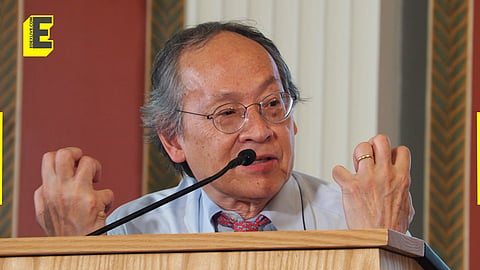

The Library of Congress has appointed Arthur Sze, a 74-year-old acclaimed author and translator, as the new US poet laureate for a one-year term beginning this fall.
Sze, who has published 12 poetry collections and received a lifetime achievement award from the library last year, succeeds Ada Limón, who served for three years. Notable past laureates include Joy Harjo, Louise Glück, and Billy Collins.
Sze’s reflections on the role
During a Zoom interview with The Associated Press from his home in Santa Fe, New Mexico, Sze shared his initial reservations when Rob Casper, head of the library’s poetry and literature center, approached him in June about the role. Concerned about the responsibilities and recent institutional upheaval, Sze took a night to consider before accepting. “I think it was the opportunity to give something back to poetry, to something that I’ve spent my life doing,” he explained. “So many people have helped me along the way. Poetry has just helped me grow so much, in every way.”
Library of Congress leadership controversy
Sze’s appointment comes during a challenging period for the Library of Congress, a 200-year-old nonpartisan institution with a vast archive of US-published books. In May, President Donald Trump fired Librarian of Congress Carla Hayden following accusations from conservative activists of promoting a “woke” agenda, a critique Trump has also directed at other cultural institutions like the Kennedy Center and Smithsonian museums.
The dismissal drew sharp criticism from congressional Democrats, library leaders, scholars, and former laureates, including Limón and Harjo.
Interim leadership dispute
The White House named Deputy Attorney General Todd Blanche as acting librarian, but Robert Randolph Newlen, a longtime library official, is managing daily operations. Despite the leadership turmoil, events like the annual National Book Festival have proceeded without disruption or changes.
The poet laureate position traditionally avoids political involvement, though this precedent was notably challenged in 2003 when Billy Collins publicly opposed President George W Bush’s push for war against Iraq.
